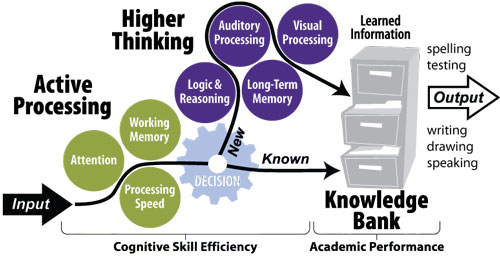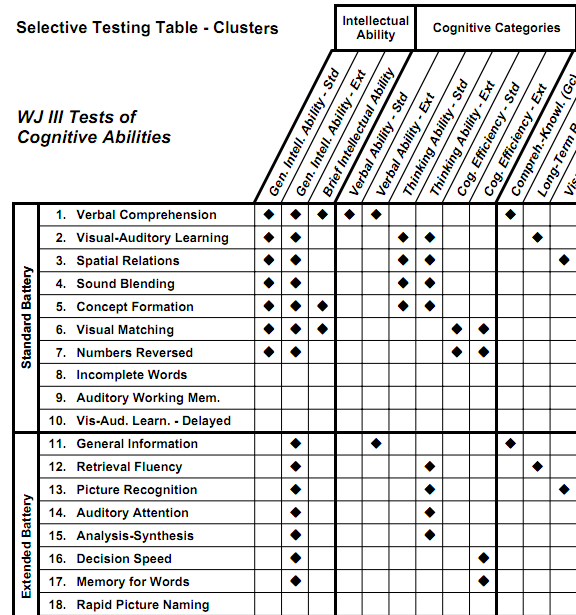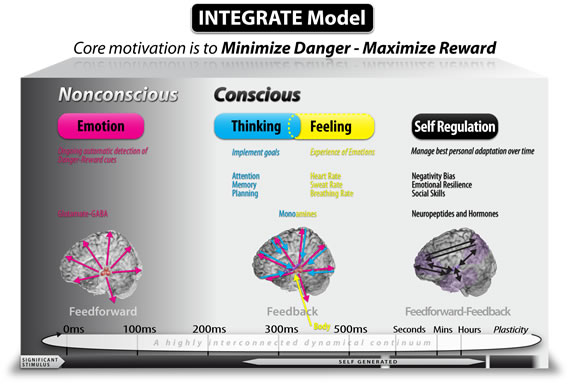Are Brain Training & Brain Fitness Being Hyped?
 There are now many software programs available that claim to be able to improve memory or otherwise enhance your cognitive performance. The idea is that you workout with the software (sometimes a game) for your brain much like you workout with exercise equipment for your body. We have reviewed several of these on the Next Brain blog and always ask the question – do they work?
There are now many software programs available that claim to be able to improve memory or otherwise enhance your cognitive performance. The idea is that you workout with the software (sometimes a game) for your brain much like you workout with exercise equipment for your body. We have reviewed several of these on the Next Brain blog and always ask the question – do they work?
Unfortunately, the answer is not clear. Scientific studies are limited or produced mixed results. But brain training is a big business, ringing up hundreds of millions of dollars in sales annually. This means advertising claims can get a bit aggressive. The editor-in-chief of Psychology World makes this point well in his recent post, The New Snake Oil: Brain Training & Brain Fitness. It is worth a read. The bottom-line is,
be wary of ads that make strong claims about improving your brain function or cognitive performance.
Good advice for any product or service!
I am interested to hear from readers that have seen ads for braining training or fitness products that are over the top in the claims they make.
Categories: Cognitive Decline, Memory and Learning, Software Tags: brain training
Up Mental Processing Speed by 10% in 21 Days
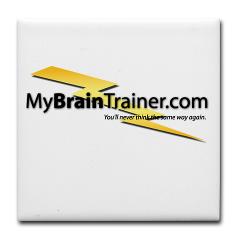 A new study from Swinburne University of Technology showed significant improvement in mental processing speed in a small group of older adults that used braining training software for 20 minutes every day for 21 days. Thirty four adults ages 53-75 years participated in the study using MyBrainTrainer software.
A new study from Swinburne University of Technology showed significant improvement in mental processing speed in a small group of older adults that used braining training software for 20 minutes every day for 21 days. Thirty four adults ages 53-75 years participated in the study using MyBrainTrainer software.
“We found an improvement in simple reaction time of about 10 per cent compared to the control group, which is quite a lot. The intervention improved speed of processing which translates to younger brain performance,”
Results were measured post-training as well as three weeks later. While this is a small study it does demonstrate a significant improvement cognitive performance.
Interested to hear from readers that use MyBrainTrainer. Does it help you think faster?
Categories: Cognitive Decline, Software, Training Tags: brain training
Work With Friends to Build a Stronger Brain and a Better World
 Want to grow your Next Brain? Try GardenMind an intriguing new approach that combines cognitive training, social gaming with optional donations to the World Wildlife Fund (WWF).
Want to grow your Next Brain? Try GardenMind an intriguing new approach that combines cognitive training, social gaming with optional donations to the World Wildlife Fund (WWF).
Your mind is a garden and this metaphor is used to guide how you experience brain training. For example, you play memory games to grow deciduous trees and play language games to grow flowers. You can visit a friend’s garden to provide assistance or offer a friendly challenge. Best of all, contributing to WWF initiatives means animals visit and live in your garden.
Very interested to hear from readers that play GardenMind or are aware of similar brain training platforms.
Categories: Cognitive Development, Software, Training Tags: brain training, games
Brain Training Lowers Car Crashes by 50%
 Systematic brain training using software to improve your cognitive performance is a relatively new technique. The software acts like a brain gym working your memory, visual cognition, speed of processing, numeracy, decision-making skills and the like to make them bigger and stronger. More than 10 vendors will sell you a package and program ranging in price from $20 to hundreds. We have covered most of them here on the Next Brain Blog.
Systematic brain training using software to improve your cognitive performance is a relatively new technique. The software acts like a brain gym working your memory, visual cognition, speed of processing, numeracy, decision-making skills and the like to make them bigger and stronger. More than 10 vendors will sell you a package and program ranging in price from $20 to hundreds. We have covered most of them here on the Next Brain Blog.
But does it work? And does it work better than solving crossword puzzles, playing video games or other mentally stimulating things we do for fun? There is compelling evidence that brain training software has impact it is just not clear how much.
So I am always on the lookout for new studies that look at the effectiveness of brain training software. For example, Posit Science recently publish a synopsis of two studies done in 2010. Note Posit Science sells brain training software but the studies were conducted by academic researchers in neuroscience and psychology. These are interesting because both studies show improvement in cognitive performance on tasks outside the training software. One even demonstrated a 50% reduction in at-fault car crashes over a six year period:
“This study looked at crash records for 908 older drivers who trained on a version of Posit Science’s Road Tour exercise six years earlier. Road Tour expands “useful field of view,” how much a person can take in with a single glance. Useful field of view is critical to safe driving: a wider field can help drivers spot dangers in their peripheral vision in time to react. The study authors found that training with the Road Tour technology (called “speed-of-processing training” in the study) cut a driver’s crash risk. In fact, they were responsible for about 50% fewer crashes than their untrained peers. Road Tour is available as part of both the InSight and DriveSharp brain fitness programs.”
This is an important result. It shows that brain training software can improve the cognitive performance of older adults enough to impact an important daily activity.
Interested to hear from readers that use brain training software. How does it improve your cognitive performance in daily life?
Categories: Decision Making, Older Adult, Perception, Software, Training Tags: brain training
LearningRx – A Brain Training Center Near You
A reader shared an experience they had with LearningRx a consumer center for brain training. They promise to improve your academic performance by providing coached training on a full range of cognitive skills (see diagram).
The process starts with a formal assessment using the Woodcock-Johnson assessment for cognitive abilities (partially shown below).
You are then matched with a coach and work 3-5 days per week for an hour a day for 3 months. They claim a 3.6 year improvement on the cognitive assessment and have some studies to back it up.
LearningRx has centers across the US and they want to open more using a franchise approach. Interested to hear from other readers that have used this service.
Categories: Child, Cognitive Development, College Student, Memory and Learning, Mental Focus, Perception, Training Tags: brain training
The Science of Building a Better Brain
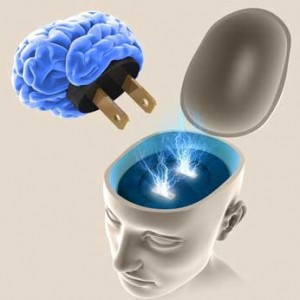 Newsweek did a great job of summarizing the findings from the cognitive enhancement strategies workshop held at the 2010 annual meeting of the Society of Neuroscience. The article, Can You Build a Better Brain? uses the latest neuroscience to differentiate between techniques that work and those that don’t. Techniques for improving brain function and enhancing cognitive performance that have strong scientific support include:
Newsweek did a great job of summarizing the findings from the cognitive enhancement strategies workshop held at the 2010 annual meeting of the Society of Neuroscience. The article, Can You Build a Better Brain? uses the latest neuroscience to differentiate between techniques that work and those that don’t. Techniques for improving brain function and enhancing cognitive performance that have strong scientific support include:
- Drugs that boost dopamine levels such as caffeine
- Regular aerobic exercise
- Meditation training
- Activities that boost mood and confidence
- Action-oriented video games
- Cognitive training software but only for the tasks done using the software
All of these techniques have been covered in the Next Brain Blog. Techniques that don’t appear to have strong evidence include, and I quote:
“Vitamins B6, B12, and E; beta carotene; folic acid; and the trendy antioxidants called flavenoids are all busts, and the evidence for alcohol, omega-3s (the fatty acids in fish), or having a large social network is weak. The Mediterranean diet is associated with a lower risk of cognitive decline, find observational studies, but that hasn’t been confirmed in more rigorous, randomized controlled studies, and no one knows whether the benefit comes from what the diet includes (olive oil, fish, vegetables, wine) or what it excludes (red meat, refined sugars, dairy fat). Statins don’t help, and neither do estrogen or NSAIDs (aspirin, ibuprofen).”
Although some of these have supporting studies they lack a clear causal connection to brain plasticity or other currently understood mechanism of cognition.
Categories: Other Tags: brain training, exercise, games, meditation, mindfulness, Mindset, vitamins
Action Video Games Work Mental Muscles Big Time
 Multiple experiments done by Daphne Bavelier, professor of brain and cognitive sciences and her group at the University of Rochester, strongly suggest that action video games improve perception (speed and accuracy), attention (including multi-tasking), decision-making and other aspects of cognition.
Multiple experiments done by Daphne Bavelier, professor of brain and cognitive sciences and her group at the University of Rochester, strongly suggest that action video games improve perception (speed and accuracy), attention (including multi-tasking), decision-making and other aspects of cognition.
That is an amazing workout for the brain especially if you are getting it by having fun. The key is to play a game that is first-person and includes a lots of action or visual-motor coordination. My favorites are Geometry Wars and Soul Caliber 4.
Interested to hear from readers that play action video games. Which games do your play? Can you feel them working your mental muscles?
Categories: Decision Making, Memory and Learning, Mental Focus, Perception, Software Tags: brain training, games
Slow But Steady to Win Brain Health Race?
 Making small changes to our daily activities can make a big difference over the years. Often called lifestyle tuning, this approach can be applied to build brain health and improve your cognitive performance. We have covered many tunning techniques on the Next Brain Blog.
Making small changes to our daily activities can make a big difference over the years. Often called lifestyle tuning, this approach can be applied to build brain health and improve your cognitive performance. We have covered many tunning techniques on the Next Brain Blog.
Posit Science, a leader in brain training software, offers 14 Brain Training Tips. They range in change magnitude from walking on rough surfaces to eating fish and learning to play a musical instrument. Here are the ones that are easy-to-do lifestyle tuneups:
4. Exercise Your Peripheral Vision
13. Walk on a Cobblestone Path
Although we don’t have research that proves lifestyle tuneups produce lasting improvements in brain health and cognitive performance, we do have such research for cardiovascular health. For example, taking stairs instead of an escalator or a 10 minute walk does in fact improve heart health. My bet is that analogous lifestyle tuneups for the brain will improve cognitive performance.
Interested to hear about your techniques for taking a slow but steady approach to the changes needed to improve brain function and cognitive performance
Categories: Diet, Lifestyle, Mental Focus, Perception Tags: brain training, cognitive fitness, exercise
Integrated Brain Training Over the Web
MyBrainSolutions offers a software-based brain training program over the web. There are also some apps for your smart phone. You can sign up for the basic membership for free or pay $9.95/month for the premium service. With the premium service you complete a brain assessment and get training recommendations based on your specific needs. You also get access to more training exercises. The basic membership gives you four. With both memberships you get a personal dashboard (web page) that provides access to your tools and results.
The program appears unique in its emphasis on emotions, thinking, feelings and self-regulation and how they work together in an integrated way. You can watch a five minute video on the site that explains it. The emphasis on automatic processing of emotional queues (mainly facial expressions) and how that shapes our intuitions and decision-making, is right on. I have not seen any other brain training program tackle that.
I am using the basic membership and like what I see. Interested to hear from readers that have purchased the premium membership. Is it worth $10 per month? Thanks.
Categories: Executive Function, Manage Emotions, Memory and Learning, Software Tags: brain training, EQ, smart phone
Spas and Storefront Gyms for Your Mind
 The Next Brain blog frequently covers software and services that provide online gym-like training for improving brain function and cognitive performance. But there are a growing number of physical locations opening that offer spa and gym experiences for those interested in cognitive training. For example, there is the Mind Spa in Sarasota Florida offering everything from neurotherapy to brain games and sensory immersion.
The Next Brain blog frequently covers software and services that provide online gym-like training for improving brain function and cognitive performance. But there are a growing number of physical locations opening that offer spa and gym experiences for those interested in cognitive training. For example, there is the Mind Spa in Sarasota Florida offering everything from neurotherapy to brain games and sensory immersion.
 Or there is vibrantBrains in San Francisco that bills itself as a health club for your brain. They offer a checkup and a variety of circuit training programs using some of the best brain training technology on the market. For a more info on vibrantBrains check out this blog post.
Or there is vibrantBrains in San Francisco that bills itself as a health club for your brain. They offer a checkup and a variety of circuit training programs using some of the best brain training technology on the market. For a more info on vibrantBrains check out this blog post.
Interested to hear from readers that know about other storefront brain gyms or spas. What is the experience is really like?
Categories: Software, Training Tags: brain fitness, brain gym, brain training, cognitive fitness

